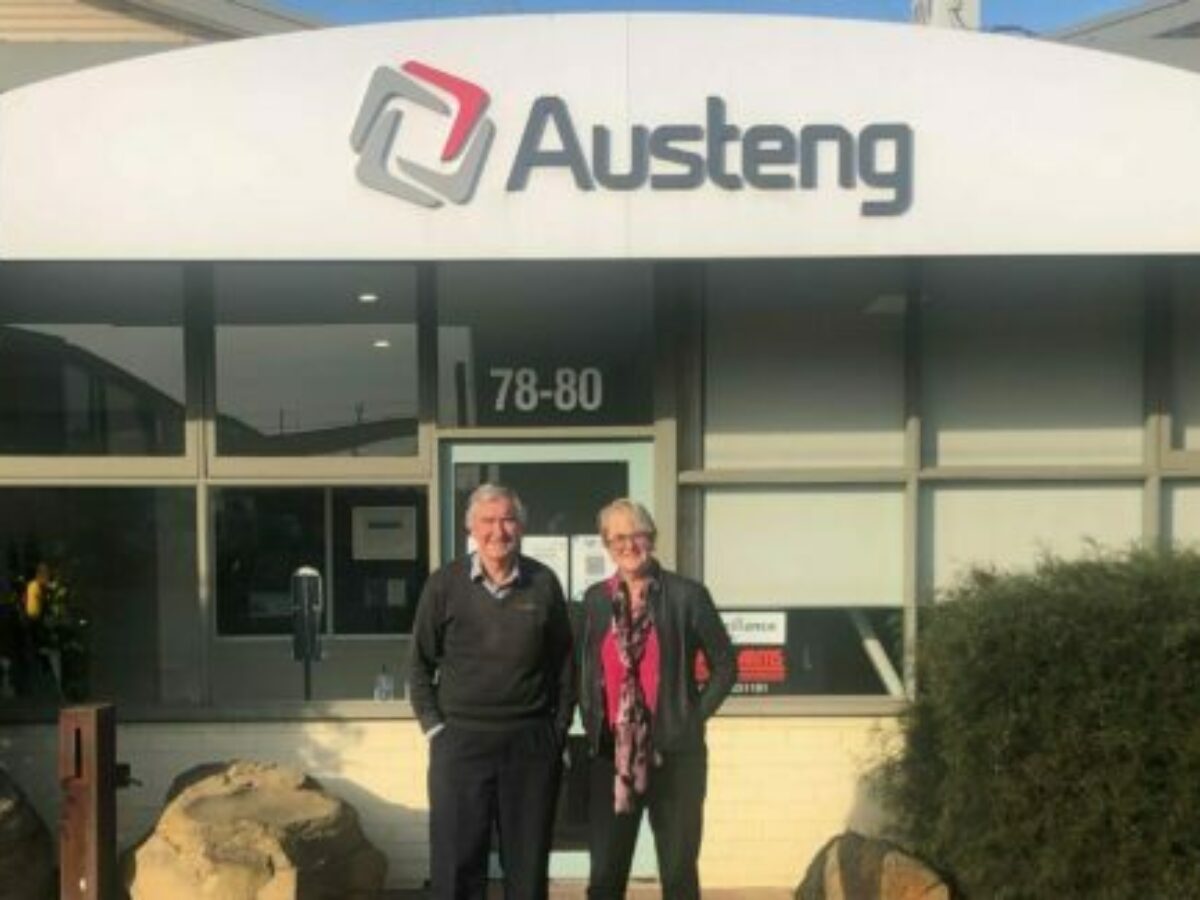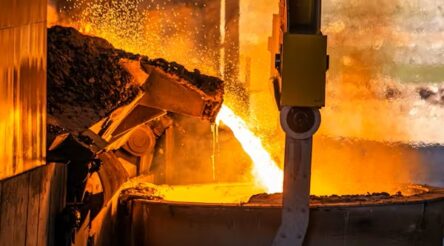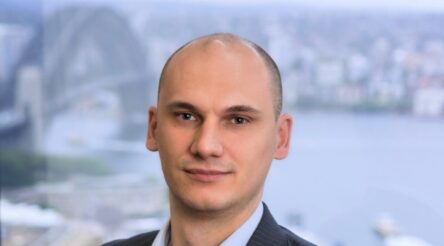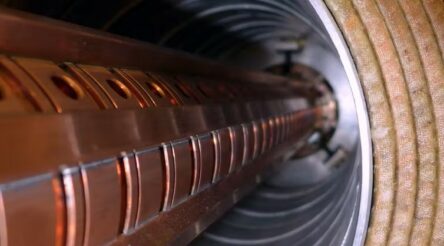Finding one’s special purpose (podcast)

By Brent Balinski
“Geelong’s had an interesting evolution and obviously the company in its various forms reflects that,” Ross George, Managing Director of Austeng, a self-described boutique engineering firm plying its trade in the city.
“My grandfather supplied parts to International Harvester, Ford, Alcoa, Pilkington Glass, and so all the Geelong-based automotive businesses, which have sort of completely disappeared.”
It has been told elsewhere and will be familiar to some readers, but Austeng’s story is nonetheless a reminder that when the going gets tough, it can be wise to reinvent yourself.
A visit to the husband-and-wife-run company’s offices during the Avalon Airshow week is an occasion to learn what new problem they’re currently trying to solve. This time around its modified crematoria furnaces that can run on a gas/hydrogen blend as well as plain old natural gas, as well as a way of reconditioning oak wine barrels.
In some ways Austeng is like a microcosm of Geelong — which has adapted and even grown its manufacturing base despite the losses of traditional companies like Ford and Alcoa — and its change in focus to newer industries, newer companies, and newer products, some of which are bona fide world-firsts.
“We really had to decide what we were going to do from there, when and how we were going to transition. And so we really had to think back to what was our unique value proposition,” Corporate Director Lyn George says of the disappearance of passenger car-making, an industry that once dominated company revenues.
“So special purpose equipment for [the] industry space, and vertically integrated with engineers, designers, drafties and trades. So we really decided that in fact one of our strengths was actually working with early-stage technologies. That’s when we started to work with a number of startups and universities, taking their concept or idea, turning it into a prototype or commercial production facility to prove to the outside world or investors that it actually worked.”
Among other projects – such as three decades serving the cemetery and crematorium industry, stable work that sustained the company during the lows of their transition – Austeng has a stake in eight startups it is helping with commercialisation. These include material upcycling business Polymeric Powders, food waste valorisation company Viridi, and heat engine business Capricorn Power.
Theirs is a story of getting on with it, working hard, and thinking about what exciting challenges lie ahead, rather than dwelling on what’s disappeared.
In this episode of @AuManufacturing Conversations with Brent Balinski, we hear from the Georges about their place in the region's reinvention, their shift to startups and clean technologies in the last decade, the responsibility manufacturers have to inspire the next generation, and more.
Episode guide
0:30 – Introduction and the company’s engineering heritage.
1:15 – Lyn joins in 1993, and the pluses and minuses of running a SME manufacturing business.
2:45 – Moving from a supplier to larger manufacturing companies in automotive and elsewhere to startups.
5:55 – A highly efficient waste heat-to-electrical energy engine.
7:02 – Bending corrugated iron at precise angles.
8:18 – Upcycling plastic and rubber into a new composite material.
10:30 – Glass-fibre-reinforced geopolymer, a locally-developed alternative to concrete.
12:30 – The cemetery and crematorium industry. “…Certainly in the downturn, when auto left, that was the sector that actually sort of did keep our business alive for a while, while we transitioned the other part of our business.
13:35 – New projects in hydrogen cremators, the onsite demonstrator, and addressing potential business risks for customers. “On an existing gas burner without modification we can inject up to 40 per cent hydrogen.”
16:12 – The place of Deakin University in Geelong’s manufacturing ecosystem.
18:20 – The Geelong Manufacturing Council’s 25th anniversary and its role in the community.
20:50 – What has moved the company towards environmental technology projects over the years. “Certainly, that’s where our young people here, our young engineers and tradesmen have got their eye on… They’ve got a whole career in fixing the problems that we’ve created in the last 150 years.”
22:42 – The issue of local procurement, as a driver of innovation and as something that needs adjustment to support manufacturers in general.
25:30 – The skills issue, and the need to inspire students at the high school level.
Further reading
AUSTENG HELPS CREATE NEW MONASH UNI CIVIL ENGINEERING RESEARCH FACILITY
AGE-DEFYING AUSTRALIAN-MADE COMPOSITE BRIDGES WIN PUBLIC WORKS AWARDS
GEELONG MANUFACTURER TO INVESTIGATE HYDROGEN-POWERED CREMATION
EVERYONE WOULD DO BETTER IF WE GOT TO KNOW OUR NEIGHBOURS
A NEW DEAL PLAN FOR MANUFACTURING – HOW GEELONG CAN SHOW THE WAY
@aumanufacturing Sections
Analysis and Commentary Awards casino reviews Defence Gambling Manufacturing News Online Casino Podcast Technology Videos





